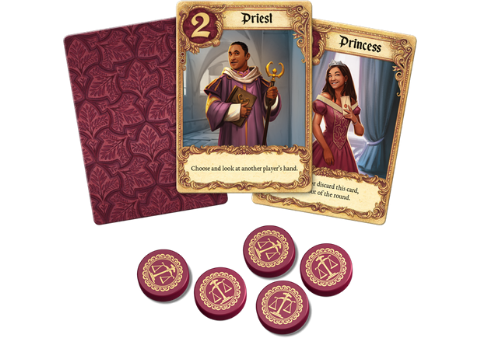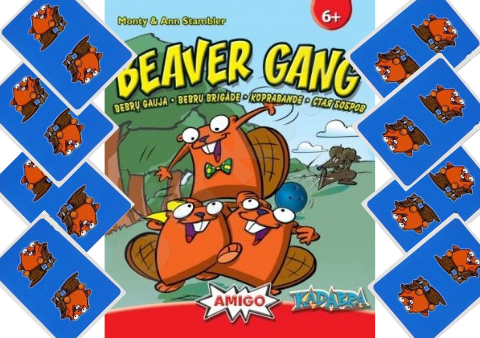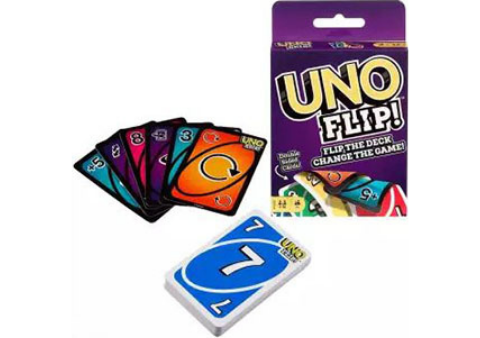Spyfall is classified as for card gamesas it only requires the special cards for the game. It is therefore also suitable for play where there is no room for a large game board. The more players (maximum 8), the more fun. During the game, everyone asks questions to try to complete the task they have been given: for the spy, it is to find out where you are and not to reveal who you are; for the other players, it is to find out who the spy is and to make it clear that it is not you.
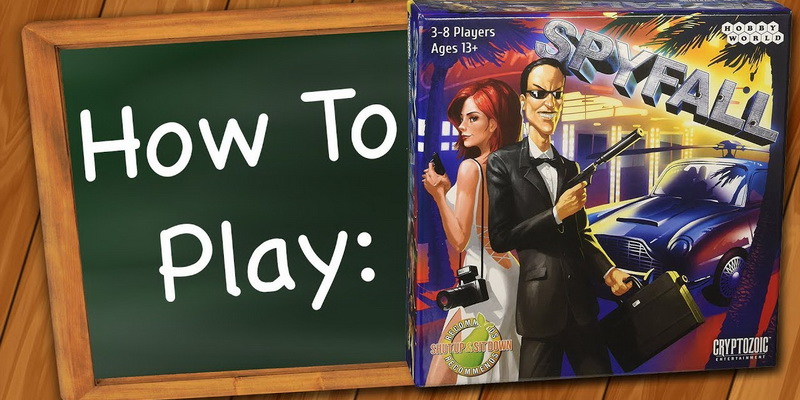
About the game
Spyfall consists of several short rounds:
- Each round, everyone ends up in a certain place (one of 30 possible places).
- There is always one spy among the players.
- It is not the spies who get the cards and find out where they all are and what role they play in it.
- The spy's job is to find out the location and the other players' job is to find out who the spy is.
So Spyfall will require you to be attentive, focused and alert, but to try hard not to give yourself away.
Game set: 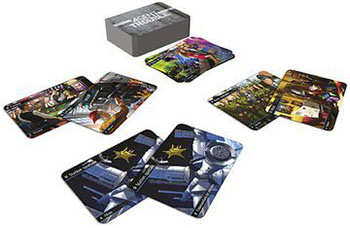
- 240 cards (30 sets of 8 cards);
- 30 resealable plastic bags;
- game rulebooks (4 languages)
- The game requires time-keeping, but there is no device in the set for this. In this case, it is best to use the stopwatch on your phone.
Frequently asked questions
❓ How many people can play Spyfall?
Based on the original rules, Spyfall is adapted from 3 to 8 people.
❓ How old can I play Spyfall?
Spyfall is a game for people from 12 years, although slightly younger players can try it out if they wish.
❓ How long does Spyfall last?
It will usually take about 45 minutes. Although the duration may vary depending on the number of rounds and the length of the rounds.
Spyfall rules
Game objectives
- The spy's goal is to remain undisguised or located by the end of the agreed round;
- The goal of the other players is to agree on who the spy is.
Preparing for Round 1
First, sort the playing cards into sets of seven cards with identical artwork and one spy card (30 sets in total). Place the sets in separate bags. The cards must be face up and the spy card placed on top of them.
All possible locations are shown in the middle of the rulebook. It would be best for everyone to review them carefully before the game starts.
Note: the game may expose the place, but the spy can easily get away with peeking all the time. There are four booklets to use with multiple open books.

Put all the bags on the table or wherever is convenient for you. The bags can be placed in a box or in an opaque bag, so you don't have to worry about the cards being opened accidentally.
Spyfall launches
Start of round
Spyfall consists of several rounds, the number of which is agreed by the players before the game starts. It is recommended to start with 5 rounds of 8 minutes each.
At the start of each round, the cards are dealt by a different player. The one who looks the most suspicious starts first. He pulls out one random bag and removes the cards without turning them over. From the top of the pile he takes as many cards as there are players. He then shuffles them and deals a card to each player. The remaining cards are left unopened and put aside. The dealer is also involved in the game, as is everyone else.
Everyone looks at their card, memorises it and places it face down in front of them.
Next time, the dealer is the one who was the spy in the previous round. As in the first deal, he pulls out one bag, takes as many cards as there are players, shuffles them and deals them to all players.
You can agree on how long you can look at the cards, or how many times you are allowed to look at them during the game. However, this is not strictly necessary.
Game progress
- The dealer sets the stopwatch and the Spyfall game begins.
- The dealer asks one question of any player, addressing them by their first name: "Marta, tell me...".
- The player who answers a question asks a question to anyone other than the person who asked you the question.
- The questions are usually related to the location of the game (optional, but if you don't, you may appear to be a spy). You can only ask one question per turn. The answer can be anything. The choice of which person to ask and what question to ask is based on the questions and answers you have heard, in order to clarify and complete your task.
- The non-spy card not only indicates the location but also the role, and it should be agreed before the game whether roles will be followed or played without (more fun to play with roles, of course). Even though it says say "actress" and you are a man, consider that it says "actor". If it says "student", in response to a question, you can say "oh those old people, that's..." to show that you are a young person.
Game cards

Spy card 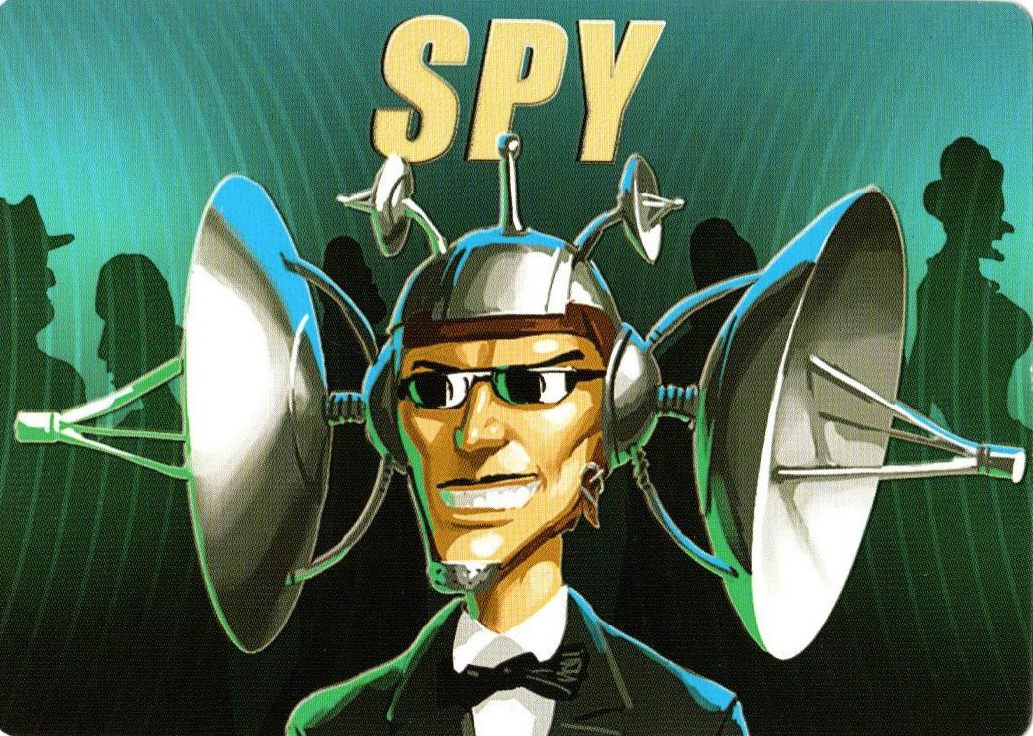
Example of a round
Marta looks the most suspicious, so she deals the cards. Linas, Adam, Marta and Asta find themselves in the Crusader army. But Linas doesn't know this because he is a spy. Adam becomes a knight, Marta an armourer and Asta an archer. Linas tries to keep his secret and find out where they are, while the other three players try to find out who the spy is.
Marta (as she was the one who was handing out the money) asks the first question, "Asta, do you remember which sea we swam in yesterday?". Asta naturally answers: "The Mediterranean". Spy Lin points this out and suggests that maybe the place is a beach or a pirate ship. Since Asta cannot ask Martha now, she asks Adam: "Adam, when do we get our salaries, at the beginning of the month or at the end?". (The players may suspect that Asta is a spy because of the strange question). Since Adam knows the setting, he answers the question calmly: "Who knows? We get paid when the commander wants us to." The spy is suspicious of the word "commander" and starts to wonder whether they are on a military base or a submarine. Then Adam asks Lin, "Lin, what did you have for lunch yesterday?" Linas, not knowing the place, evades: "Potatoes as usual, nothing special". The other players are suspicious of Linas, because they know that the Crusaders didn't eat potatoes because Columbus didn't bring them until some 300 years later...
End of round
The round ends in one of three ways:
1. 8 minutes (or other pre-agreed time for the round) expires
At the end of the time, everyone must tell you who they suspect is a spy. The dealer asks for a clockwise vote. Everyone can be consulted before voting. If all players (except the spy) vote for the same person (the real spy) then they win. If at least one person (not the spy) votes for someone else, the spy wins.
Note: Before the start of the game, it can be agreed how many people can make a mistake: one or two. It is important that the majority guess.
2. The player is under suspicion
Any player can stop the game once per round and ask for a vote. They must then tell the player who they suspect of being a spy. If everyone votes for the same person, the round is over (even if they did not guess correctly). If different people are voted for, the round continues.
It is useful to do this action because the person who initiated it receives an extra point if guessed. Alternatively, the spy can trick the other players into doubting that he is not a spy, thus winning the round.
Discussion is allowed during this vote, but is not recommended, as if the round continues you may give the spy more details about the location.
3. When a spy demands it
A spy can stop the game at any time by showing his card. Then he can safely look at the rulebook with the places, because everyone already knows who he is anyway. So he tries to guess the location, if he is right the spy wins, if he is wrong the other players win.
NOTE
A round can only be stopped once - for example, if a player has stopped a round for a spy vote, the spy can no longer stop the player from trying to guess the location.
After a round, the cards are discarded and may not be drawn in subsequent rounds.
Objectives and strategies
- Since the aim is to guess the spy without giving away his location, players must be careful in their questioning and answering. If a player asks the question "what did you do for homework today?", the spy may stop the game and immediately guess that they are at school.
- However, a player cannot answer or ask questions that are completely off-topic, because then someone might think they are a spy and lose the vote.
- A spy whose purpose is to be undisclosed or to learn a location must listen carefully, analyse and try to get out of the way when it comes time to ask or answer. If he sees that he is highly suspicious, he may risk stopping the game and guessing the location, thus still having a chance to win.
Scoring
- If a spy, stopping the gameIf the player guesses the location, he scores 2 extra points in that round;
- When after the round a vote is taken and at least one player (other than the spy) guesses incorrectly, the spy scores 2 points (unless otherwise decided due to the number of guesses);
- If after the round a vote is taken and all players (except the spy) who guess correctly receive 1 point each (unless otherwise decided due to the number of guesses);
- When when the game is stoppedif everyone chooses the same person but that person is not a spy, then the spy gets 2 extra points;
- If when the game is stoppedif everyone guesses the spy, then all players (except the spy) get 1 point + the person who initiated the guess gets an extra 1 point.
Example:
The spy stops the round and guesses the correct location - he gets 2 points for guessing the location and 2 more points for winning the round, for a total of 4 points;
At the end of the round, the players have guessed who the spy is and all hit correctly (except the spy), all non-spies get 1 point;
Marta stopped the round, asked for a vote, everybody voted that Linas was a spy (this time he was), so everybody except the spy got 1 point and Marta got 2 points.
Spyfall is finished
The player with the most points after the agreed number of rounds wins. In the game There can be multiple winners if they have the same number of points.
